-
 Bitcoin
Bitcoin $93,943.7603
-0.41% -
 Ethereum
Ethereum $1,773.2137
-1.80% -
 Tether USDt
Tether USDt $0.9998
-0.01% -
 XRP
XRP $2.0961
-2.64% -
 BNB
BNB $594.6411
-0.06% -
 Solana
Solana $142.7596
-1.39% -
 USDC
USDC $1.0000
0.00% -
 Dogecoin
Dogecoin $0.1659
-3.07% -
 TRON
TRON $0.2441
-1.84% -
 Cardano
Cardano $0.6506
-2.54% -
 Sui
Sui $3.2012
-7.51% -
 Chainlink
Chainlink $13.3057
-3.56% -
 Avalanche
Avalanche $19.4416
-0.68% -
 UNUS SED LEO
UNUS SED LEO $8.7236
1.19% -
 Stellar
Stellar $0.2548
-3.44% -
 Toncoin
Toncoin $2.9787
-0.37% -
 Shiba Inu
Shiba Inu $0.0...01244
-1.94% -
 Hedera
Hedera $0.1702
-2.20% -
 Bitcoin Cash
Bitcoin Cash $352.4717
-0.56% -
 Hyperliquid
Hyperliquid $19.6286
-2.65% -
 Litecoin
Litecoin $81.9195
-7.52% -
 Polkadot
Polkadot $3.8566
-1.91% -
 Dai
Dai $1.0000
0.00% -
 Monero
Monero $287.3544
4.00% -
 Bitget Token
Bitget Token $4.3075
0.19% -
 Ethena USDe
Ethena USDe $1.0001
-0.02% -
 Pi
Pi $0.5789
-2.25% -
 Pepe
Pepe $0.0...07661
-4.14% -
 Bittensor
Bittensor $358.9078
-0.29% -
 Uniswap
Uniswap $4.8671
-2.68%
Virtual currency wallet address format
Virtual currency wallet addresses, unique identifiers for cryptocurrency transactions, vary in format depending on the specific network, with Bitcoin (BTC) addresses featuring a leading "1" or "3", while Ethereum (ETH) addresses start with "0x".
Jan 13, 2025 at 03:15 am
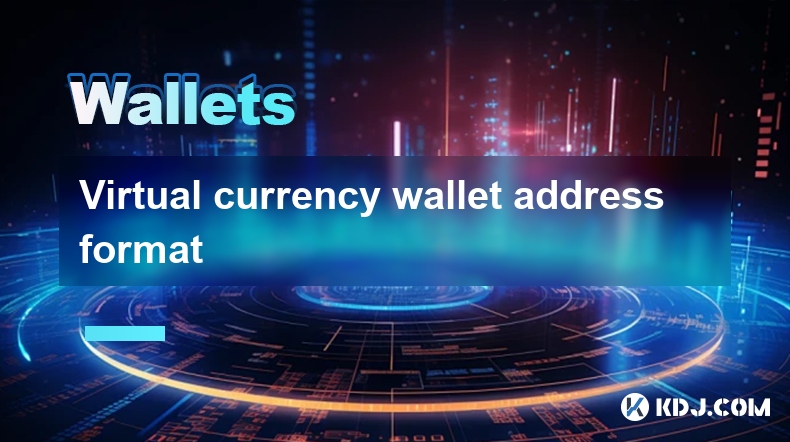
Key Points
- Understanding Virtual Currency Wallet Address Formats
- Types of Virtual Currency Wallet Addresses
- Generating and Managing Virtual Currency Wallet Addresses
- Best Practices for Secure Wallet Management
- Troubleshooting Common Wallet Address Issues
Virtual Currency Wallet Address Formats
A virtual currency wallet address is a unique identifier used to receive and send cryptocurrency transactions. It is analogous to a bank account number in traditional finance, but with added security features. The format of virtual currency wallet addresses varies depending on the specific cryptocurrency network.
Types of Virtual Currency Wallet Addresses
- Bitcoin (BTC): BTC addresses begin with the number "1" or "3" and are 26-35 characters long. They can be represented in either Base58 or BECH32 formats.
- Ethereum (ETH): ETH addresses start with "0x" and are 42 characters long. They are typically presented in hexadecimal format.
- Litecoin (LTC): LTC addresses begin with "L" or "M" and are 33 characters long. They use the same Base58 format as BTC addresses.
- Dogecoin (DOGE): DOGE addresses start with the letter "D" and are 34 characters long. They also use the Base58 format.
Generating and Managing Virtual Currency Wallet Addresses
Most cryptocurrency wallets provide a built-in feature for generating new addresses. These addresses are usually randomly generated and unique to the specific wallet.
It is important to safely store the private key associated with your wallet addresses. The private key is essential for accessing and managing your funds. It should never be shared with anyone and should be stored securely offline.
Best Practices for Secure Wallet Management
- Use Strong Passwords: Use strong, complex passwords to protect your wallet from unauthorized access.
- Enable Two-Factor Authentication (2FA): Utilize 2FA mechanisms to add an extra layer of security to your wallet.
- Store Your Keys Safely: Keep your wallet's private key securely offline in a hardware wallet, password manager, or encrypted storage device.
- Be Wary of Phishing Attempts: Avoid clicking on suspicious links or opening attachments from unknown senders.
- Monitor Your Wallet Activity: Regularly check your wallet's transaction history for any unauthorized activity.
Troubleshooting Common Wallet Address Issues
- Invalid Address Format: If you encounter an error message indicating an invalid address format, double-check the address for any typos or incorrect characters.
- Address Not Found: If you are unable to find a wallet address associated with a specific transaction, it may be an unspent transaction or a transaction that was sent to a different address.
- Retrieval Failed: If you are having issues retrieving funds from a wallet address, ensure that you have entered the correct private key and that the address is not associated with a frozen or compromised wallet.
Frequently Asked Questions
What is the difference between a public and private key?
- Public Key: A public key is used to receive cryptocurrency transactions. It is the address that you share with others to receive funds.
- Private Key: A private key is used to access and manage your cryptocurrency funds. It must be kept confidential and stored securely.
Can I reuse a wallet address?
- Yes, you can reuse a wallet address multiple times. However, it is generally not recommended as it reduces the privacy and anonymity of your transactions.
How do I know if a wallet address is valid?
- Each cryptocurrency network has specific rules for generating valid wallet addresses. You can use online checking tools or refer to the official documentation of the cryptocurrency to verify the validity of an address.
What should I do if I lose my wallet's private key?
- If you lose your wallet's private key, you will no longer have access to your cryptocurrency funds stored at that address. It is recommended to create a backup of your private key in a secure location.
Disclaimer:info@kdj.com
The information provided is not trading advice. kdj.com does not assume any responsibility for any investments made based on the information provided in this article. Cryptocurrencies are highly volatile and it is highly recommended that you invest with caution after thorough research!
If you believe that the content used on this website infringes your copyright, please contact us immediately (info@kdj.com) and we will delete it promptly.
- Bitcoin (BTC) Holds Above $94,000 as the Market Awaits the Fed's Decision
- 2025-05-06 20:15:12
- The Rise of Crypto Launchpads: How Pumpfun Dominates the Market and New Players Emerge
- 2025-05-06 20:15:12
- Hedera (HBAR) Holders Brace for Impact – Trillions Are Flooding On-Chain!
- 2025-05-06 20:10:14
- The internet has long promised freedom—freedom to connect, to create, and to share without boundaries.
- 2025-05-06 20:10:14
- VanEck Files to Launch the First-Ever Spot BNB ETF
- 2025-05-06 20:05:12
- The 4 Best Long-Term Crypto Opportunities in 2025: Web3 ai, Avalanche, Cardano, and Toncoin
- 2025-05-06 20:05:12
Related knowledge
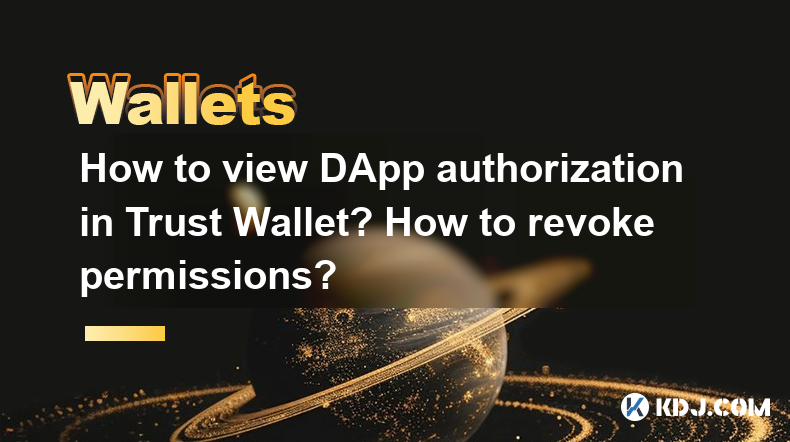
How to view DApp authorization in Trust Wallet? How to revoke permissions?
May 06,2025 at 06:56pm
Managing DApp authorizations in Trust Wallet is crucial for maintaining the security of your cryptocurrency assets. Trust Wallet, a popular mobile wallet, allows users to interact with decentralized applications (DApps) directly from their mobile devices. However, it's important to keep track of which DApps have been granted access to your wallet and to...
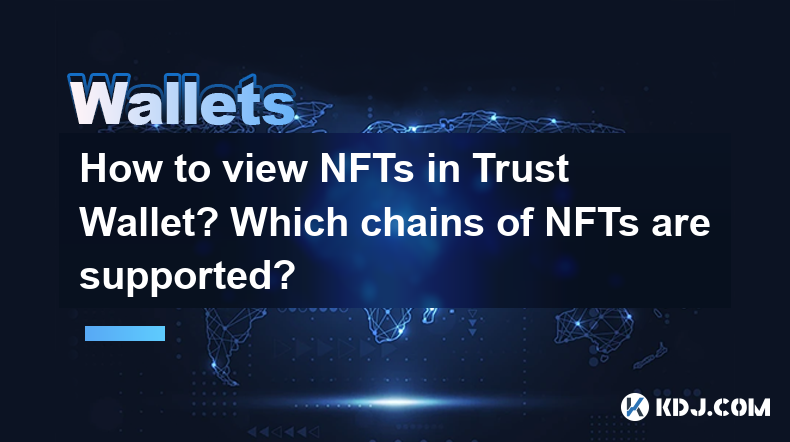
How to view NFTs in Trust Wallet? Which chains of NFTs are supported?
May 06,2025 at 05:28pm
How to View NFTs in Trust Wallet? Which Chains of NFTs Are Supported? Trust Wallet is a popular mobile cryptocurrency wallet that supports a wide range of digital assets, including Non-Fungible Tokens (NFTs). Viewing your NFTs in Trust Wallet is a straightforward process, and the wallet supports NFTs from various blockchain networks. In this article, we...
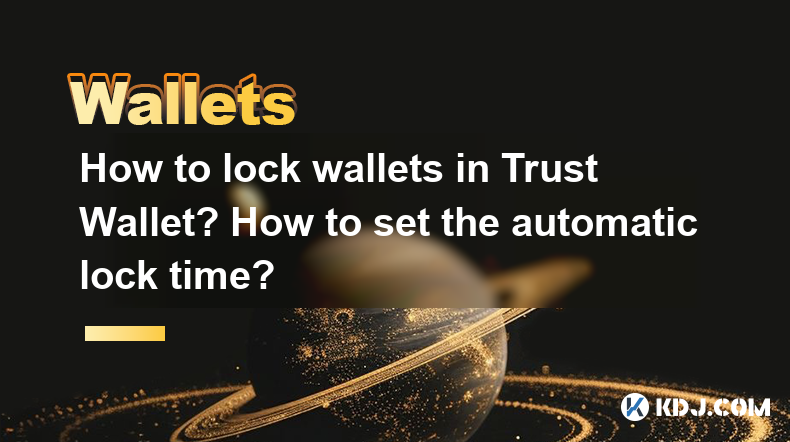
How to lock wallets in Trust Wallet? How to set the automatic lock time?
May 06,2025 at 08:14pm
Introduction to Trust Wallet SecurityTrust Wallet is a popular mobile cryptocurrency wallet that offers a variety of features to ensure the safety of your digital assets. One of the crucial security features is the ability to lock your wallet, which adds an extra layer of protection against unauthorized access. In this article, we will guide you through...
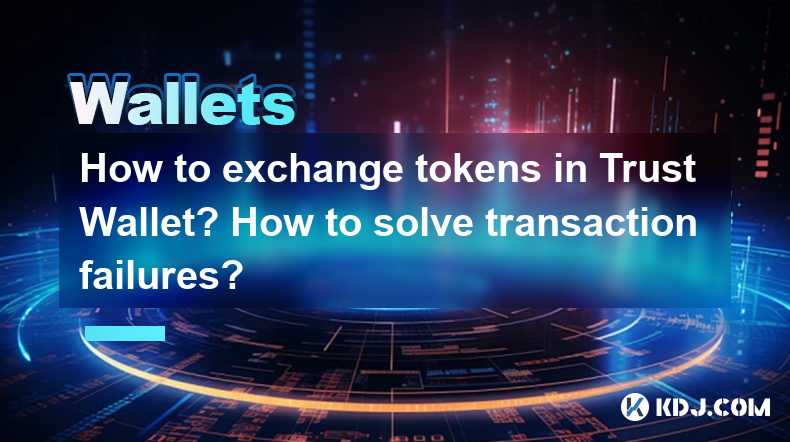
How to exchange tokens in Trust Wallet? How to solve transaction failures?
May 06,2025 at 06:08pm
Exchanging tokens in Trust Wallet and solving transaction failures are essential skills for any cryptocurrency user. Trust Wallet, a popular mobile wallet, supports a wide range of cryptocurrencies and offers a user-friendly interface for token swaps. However, users may encounter issues such as transaction failures, which can be frustrating. This articl...
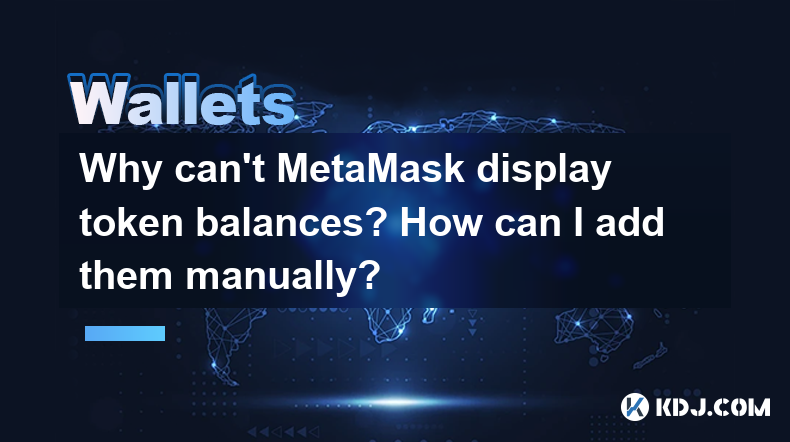
Why can't MetaMask display token balances? How can I add them manually?
May 06,2025 at 07:35pm
Why can't MetaMask display token balances? How can I add them manually? MetaMask is a popular cryptocurrency wallet that allows users to interact with the Ethereum blockchain and other compatible networks. While MetaMask automatically displays the balance of Ether (ETH), it does not automatically show the balances of other tokens. This is because MetaMa...
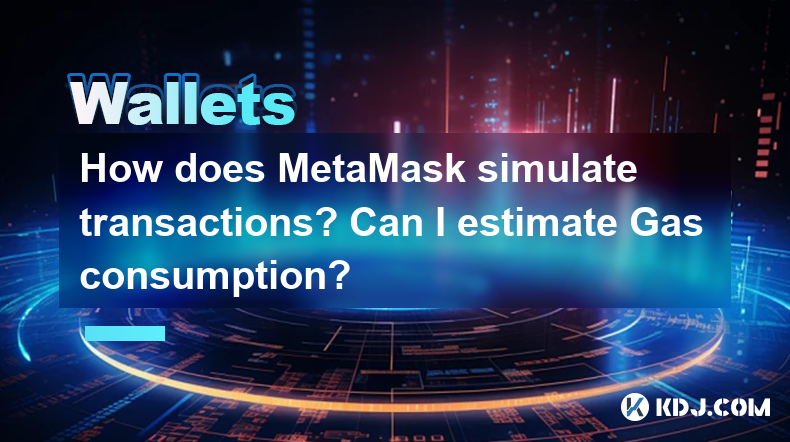
How does MetaMask simulate transactions? Can I estimate Gas consumption?
May 06,2025 at 03:49pm
How does MetaMask simulate transactions? Can I estimate Gas consumption?MetaMask, a popular Ethereum wallet and gateway to blockchain applications, offers users the ability to simulate transactions and estimate gas consumption before they are executed on the Ethereum network. This feature is crucial for users to understand the potential costs and outcom...

How to view DApp authorization in Trust Wallet? How to revoke permissions?
May 06,2025 at 06:56pm
Managing DApp authorizations in Trust Wallet is crucial for maintaining the security of your cryptocurrency assets. Trust Wallet, a popular mobile wallet, allows users to interact with decentralized applications (DApps) directly from their mobile devices. However, it's important to keep track of which DApps have been granted access to your wallet and to...

How to view NFTs in Trust Wallet? Which chains of NFTs are supported?
May 06,2025 at 05:28pm
How to View NFTs in Trust Wallet? Which Chains of NFTs Are Supported? Trust Wallet is a popular mobile cryptocurrency wallet that supports a wide range of digital assets, including Non-Fungible Tokens (NFTs). Viewing your NFTs in Trust Wallet is a straightforward process, and the wallet supports NFTs from various blockchain networks. In this article, we...

How to lock wallets in Trust Wallet? How to set the automatic lock time?
May 06,2025 at 08:14pm
Introduction to Trust Wallet SecurityTrust Wallet is a popular mobile cryptocurrency wallet that offers a variety of features to ensure the safety of your digital assets. One of the crucial security features is the ability to lock your wallet, which adds an extra layer of protection against unauthorized access. In this article, we will guide you through...

How to exchange tokens in Trust Wallet? How to solve transaction failures?
May 06,2025 at 06:08pm
Exchanging tokens in Trust Wallet and solving transaction failures are essential skills for any cryptocurrency user. Trust Wallet, a popular mobile wallet, supports a wide range of cryptocurrencies and offers a user-friendly interface for token swaps. However, users may encounter issues such as transaction failures, which can be frustrating. This articl...

Why can't MetaMask display token balances? How can I add them manually?
May 06,2025 at 07:35pm
Why can't MetaMask display token balances? How can I add them manually? MetaMask is a popular cryptocurrency wallet that allows users to interact with the Ethereum blockchain and other compatible networks. While MetaMask automatically displays the balance of Ether (ETH), it does not automatically show the balances of other tokens. This is because MetaMa...

How does MetaMask simulate transactions? Can I estimate Gas consumption?
May 06,2025 at 03:49pm
How does MetaMask simulate transactions? Can I estimate Gas consumption?MetaMask, a popular Ethereum wallet and gateway to blockchain applications, offers users the ability to simulate transactions and estimate gas consumption before they are executed on the Ethereum network. This feature is crucial for users to understand the potential costs and outcom...
See all articles




















































































